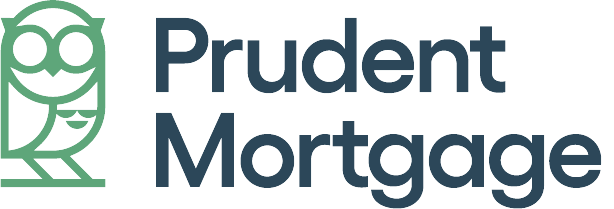
Home equity loans vs Reverse Mortgages
As a home owner, you probably know already that your home is a valuable asset. When you find yourself short of money, it proves an almost guaranteed way to get a yes from the majority of lenders. Non-bank lenders especially are very keen on lending money to home owners.
Homeowners do have options in determining the best way to use the equity of your home to your best advantage.
All kinds of situations arise that require immediate money, even if you’re not in a position to pay it. For example, in the middle of winter the furnace goes. You obviously can’t wait on this so you need to secure immediate money to have a new furnace installed as quickly as possible.
That instance and many more happen every day and life doesn’t wait for a better time financially. So, when your cash assets are low, or they are tied up in investments that are not easily accessed, borrowing using your home is an excellent decision.
Rates
And because a home is such a stable asset, lenders often give you a preferred interest rate, over lending against the value of a car or other asset that depreciates in value.
Let’s look at the most common ways to use your home to leverage its’ value and put money in your hands.
Borrowing Using your Home
As a home owner, you probably know already that your home is a valuable asset. When you find yourself short of money, it proves an almost guaranteed way to get a yes from the majority of lenders. Non-bank lenders especially are very keen on lending money to home owners.
Why borrow using your home?
- Sometimes you simply need to borrow money quickly for an emergency and you have no choice. For example, the furnace decides to die in mid January. That’s not a repair you can sit on, waiting for a better time financially. Examples of when borrowing against your home makes sense:
- Home consolidation loans
- Business investments
- Emergency repairs
So, that being said, what are your options when using your home as equity for a loan? Let’s breakdown home equity loans and reverse mortgages and determine which would be the better choice for your circumstances.
Your home equity loan choices
Option 1: Unsecured Home Equity Loan
Unsecured home equity loan. Some lending companies will loan you money based on the responsible behaviour you’ve shown in amassing equity in your home. As a result, they will lend you money, unsecured with the intention of building a relationship with you.
Option 2: Secured Home Equity Loan
This is also known as a 2nd mortgage. In effect, you are being lent money, with your home as collateral, based on the equity that you have built up in your home. It’s often lent based on the level of equity. For example, if you have your own 80 percent paid off, and the value of the home is $500,000, a lender may lend you as much as 80 percent of that value, ($400,000). Different lenders have different comfort levels in how high a loan to value they would provide. These lenders tend to be non-bank options.
Option 3: Reverse Mortgage.
Reverse Mortgage
If you’re an older Canadian, 55 and up, you are a prime target for lending companies offering reverse mortgages. But what’s the better option? A reverse mortgage or a home equity loan?
Both have advantages and disadvantages. A reverse mortgage does end up costing you more, but it doesn’t have to be repaid until you sell the home. A home equity loan is less expensive generally, but requires regular monthly payments. This can be a problem for a retiree on a fixed income.
Short-term money vs Long-term income
A reverse mortgage generally works better for someone who needs a long-term, steady source of income. A home equity loan is better for someone who needs short-term money that they can pay back. As mentioned in the example above, for a short term home or auto repair, this would be the perfect loan product.
Reverse mortgages are just another type of home equity loan but they do tend to be targeted at older Canadians.
Ideal for Seniors
For seniors, the big advantage of a reverse mortgage is that they don’t have to be repaid until they leave the home. At that time, the mortgage loan amount is generally repaid from the proceeds of the sale of the home, with the remainder going to the borrower or if that borrower has passed away, their estate.
It’s important to note however, a borrower’s liability on a reverse mortgage can never exceed the value of the property securing the loan . The lender is taking a chance because whatever the home eventually sells for is the most the lender is entitled to. Borrowers who choose to receive their payments in the form of regular monthly payments (installments) for as long as they own the home never have to worry about the money running out. When you are on a fixed income this can be a big advantage in favour of a reverse mortgage.
The downside of a reverse mortgage is the cost. The closing charges are substantial and the interest rate is higher than on a conventional home equity loan. Plus there are insurance fees paid each month. This means, once the home is eventually sold, you may not have much equity left when it comes time to leave your home. This could be a problem if you need that money to help pay for assisted living costs for an older senior who can no longer function in their home.
What’s best for short-term loan needs?
If repaying the loan could be difficult, a reverse mortgage can be used for short-term financial requirements, such as major home repairs or other sudden unforeseen expenses. Again, the loan doesn’t have to be repaid as long as you live in the home, but interest and fees will add up in the meantime.
Conclusion?
If you have income and are not a senior, a standard home equity loan probably makes more sense for short-term emergency loans since the total cost is definitely less than for a reverse mortgage. If you’re a senior with limited income, a reverse mortgage may be a better choice for long term income. Regardless of the choice you make, we always advise getting council and exploring all the fine print fully to make sure it’s the right choice for you. Should you determine a regular home equity loan is best for you, Prudent Financial Services is a top lender in Ontario and the greater Toronto area. Call or click to PrudentFinancial.net to speak with a loan officer who will guide you in a direction that makes sense for you. Call (416) 223-9300
